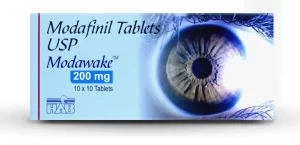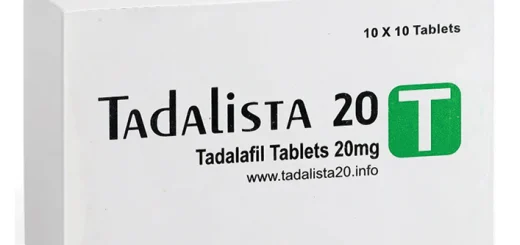Parasomnias: an overview

In this article, we’ll learn all about the various parasomnias and how many different kinds there are. We’ll examine available treatments and determine which one is ideal for you. We will see a therapist who is an expert in sleep disorders, and he will help to find the best treatment option for you and guide you throughout the process.
What are Parasomnias?
Parasomnias are sleep disorders in which you behave differently, which can happen at any stage of sleep. Your behavior is abnormal, from going to bed until you wake up. In the case of parasomnias, you may walk, talk, or do various unusual things while sleeping. Those around you may mistake your unconscious state for consciousness. You don’t know what you did last night when you woke up. If you have Parasomnia, then you may not have a good sleep. You may also disturb your partner’s sleep, and therefore partner will also suffer during the day.
Parasomnias may be due to some physical and mental issues you might face. Some of the parasomnias may be threatening because you are not awake. You can treat parasomnias sleep disorder. Next, we’ll take a look at parasomnias and the many treatments available for them.
Types of Parasomnias:
First of all, there are different sleep patterns, and they are as follows:
- REM sleep (rapid eye movement)
- NREM sleep, or non-rapid eye movement sleep
Parasomnias occur in between these sleep patterns and are of different types. Parasomnias typically manifest themselves in the first half of the night, during NREM sleep. Other parasomnias occur in the second half or later in the night. REM sleep occurs in the latter portion of the night.
Several parasomnias may happen to you while you are having a good sleep. Below is a list of parasomnias that may occur to you while sleeping:
- Sleepwalking: Somnambulism is another name for sleepwalking. In this case, you walk around the house or anywhere while sleeping. Sleepwalking is a common problem. This problem can happen when you take a small nap.
- Sleep talking: This is also a common problem; the other word is somniloquy. You talk while you are asleep. You may talk clearly or mumbling while you are sleeping. This problem may happen to you during any part of the night. In the first phases of slumber, it is simple to grasp your meaning.
- Sleep-related groaning: When you groan out loud while sleeping, it is called catatonia. Exhaling deeply and slowly causes a groan. Different sounds may come out while you groan, such as:
- Roaring
- Loud humming
- High-pitched cracking sound

Groaning is not similar to snoring. Groaning is also not a breathing issue as snoring.
- Nightmares are dreams that trouble you and make you angry, anxious, or frightened. If you may experience nightmares again and again, then it is called a nightmare disorder. You may find it difficult to sleep again in the middle of the night. There are chances of getting multiple nightmares in a single night. Nightmares mainly occur during REM sleep, when you dream more often.
- Night terrors: In this case, you suddenly wake up horror-stricken. This extreme fear can last up to 30 seconds to five minutes. You may cry, scream sweat while you are asleep if you experience a night terror. Your heart rate may increase, or your face may get red after you experience a night terror. Night terrors happen during NREM sleep.
- Bedwetting: It happens without control while you are asleep. It happens in young kids that are below 6 years. Bedwetting is also called nocturnal enuresis. Our urinary bladder can hold urine, but bedwetting occurs as it crosses its capacity. Infections of the urinary tract could be to blame.
- Confusional arousal: This time, you wake up in a confused state. You will require guidance in order to comprehend your current situation. There may be other behavior also, such as slurred speech, poor memory, and crying; you may react slowly.
- Teeth grinding: Your nightly sleep analysis will reveal whether or not you grind your teeth. Due to this, you may suffer from toothache, neck soreness, or earache.
- Sleep-related eating disorder: Eating or drinking habits while sleeping is another problem during NREM sleep. You may be conscious or maybe not while eating and drinking. Eating can happen again and again. You may eat uncooked meat, junk food and may drink quickly.
- REM sleep behavior disorder: You may see clear images of dreams, and you may act during REM sleep. In the morning, you might recall what your dream was about. Some of the behaviors you may do while sleeping are:
- Grabbing
- Punching
- Shouting
- Kicking
- Jumping
- Other Parasomnias: Some other parasomnias are uncommon and may happen to you:
- Texting in bed
- Sexsomnia
- Acute Traumatic Encephalopathy
- Delusions that occur during sleep
- Sleep-related scratching
- Sleep driving
Is Parasomnia a mental illness?
Parasomnia is not a mental illness; instead, it is a sleep disorder. Parasomnias consist of different behavior, emotions, perceptions, movements, or dreams while you are asleep. It’s not just dangerous for you, but for anyone sharing a bed with you. Parasomnia consists of different types, and they are called sleep disorders and not mental illnesses.
Parasomnia can sometimes happen due to some mental health conditions. If you have PTSD, stress, or anxiety, you are more prone to experience parasomnias. Medicines that are used to treat mental health disorders can also cause Parasomnia. If Parasomnia affects your daily life, you must take your doctor’s help. A sleep specialist doctor can give you proper guidance and treatment option.
You can meet with your doctor for advice and buy modawake 200MG

Narcolepsy is a Parasomnia or not:
Narcolepsy is not a parasomnia; actually, it is a sleep disorder. However, both narcolepsy and Parasomnia disturb the sleep pattern. Both are different conditions with different features and different root causes. Narcolepsy disturbs the sleep-wake cycle of a person. You may lose your muscle tone, which can happen due to strong emotions. Sleep paralysis can also happen in narcolepsy, and hallucinations occur while sleeping or waking up.
The sleep-wake hormone orexin is produced abnormally in people with narcolepsy. Parasomnia may occur due to genetics, stress, and medicines. Narcolepsy is a brain disorder where you feel sleepy during the day, and cataplexy is a symptom. On the other hand, Parasomnia is a term for sleep disorders where you behave abnormally and experience various things while asleep.
How to stop Parasomnia?
Parasomnia can be treated using various treatment options depending on type and severity. Your doctor may suggest the below treatment options:
Medicines:
Medicines are used when you experience Parasomnia again and again. The optimal treatment option is condition specific.
The following are examples of medications used to treat parasomnia:
- Topiramate
- Antidepressants
- Dopamine agonists
- Melatonin
- Levodopa
- Benzodiazepines
If parasomnia symptoms are due to some medicines, your doctor may change the dose or medicine. Never self-medicate; always check with your doctor first.
Cognitive behavioral therapy:
This treatment is a standard treatment for Parasomnia. It is common because Parasomnia is related to mental health problems like stress and anxiety.
There are other methods other than CBT, and those are:
- Psychotherapy
- Relaxation therapy
- Hypnosis
- Home remedies: Some of the treatments you can do at home. The doctor may suggest: Scheduled awakenings.
- Safer sleep environments
Conclusion:
From the article mentioned above, we conclude that Parasomnia is a problem that happens to a person when he is asleep. Parasomnias are a group of sleep disorders where you don’t act normal while sleeping and is not a mental illness. The sleep-wake cycle is disrupted in narcolepsy, a neurological sleep disease. Doctors have suggested various treatment options to treat Parasomnia. Please note that you only consume medicine with a doctor’s guidance.
[WPSM_AC id=4522]






